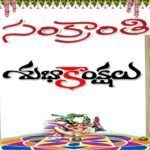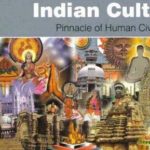I could think of no other day better than today, August 15th, to publish ACP’s inaugural blog post. Indian Independence Day represents many things to those of us who are Indians (by citizenship or descent). The announcement of Telangana state means that both Andhra and India today are at a crossroads. Will Andhras and Indians in general recognize that unity is better than division? Will they realize that this unity is rooted in a millennia old dharmic samskruti that recent superficial foreign influences cannot be allowed to divide? Will they seek to learn not only their heritage but also do purva paksa so that there can be successful engagement with other civilizations and foreign cultures?
This is the driving motivation behind the Andhra Cultural Portal. For Indic civilization to be rejuvenated and Dharma to renew, strong cultural building blocks are critical. If India’s individual regions (pradesas) have renewed interest in their respective high cultures, then the mother culture of Sanskrit will herself be restored to her rightful place.
Indians, Hindus, and Andhras today are taught that everything that is foreign is better, that their culture and classical languages aren’t worth preserving, and that they must surrender to modernity, science, and what passes for “secularism” in India. The great irony of course is that no civilization can match the philosophical depth of classical Indic civilization, the subtleties and refinement of Sanskrit, and the beauty of Telugu. Pop culture degradation and medieval parvenus are placed on par with or even above the native giants of literature, poetry, music, and arts so much so that Indians are told and now think they were “given” their culture by benevolent foreigners. But there is no equivalent to the Ramayana or the Andhra Mahabharatamu, to Kalidasa‘s poetry and Molla‘s couplets, to the Natya Sastra or the Pancharatnas.
Andhra and India must modernize to engage the globalized world, but the soul of Bharat must not be lost.
Science can improve a society’s material comfort, but it cannot give a value system with which the great quandaries of life can be tackled. Secularism can serve as a political construct to ensure government and religion are separated, but even in the West it is not a political ideology that can replace religion on its own. It is culture, and more specifically, high culture that sets high standards for individuals and societies to aspire towards. This keeps the internal bonds of societies strong, civic morality high, and individual behavior respectable. That is why it is so important for culture to be preserved and revitalized for a changing world. People are attaining (modern) knowledge, but are not becoming wise. They are gaining an education, but are not achieving the end of education: character. They are earning money but are becoming culturally impoverished. They are following a degree path, but becoming directionless.
The bitter truth is, if you don’t know where you are from, you don’t know where you are going. Indians must learn to preserve the baby (the magnificent civilizational heritage of India) while throwing out the bathwater (casteism, blind ritualism, parochialism). The Andhra Cultural Portal aims to be a step in that direction.
All of India was once known as the land of Dharma, of righteous men and chaste women, of valiant Kings who would sacrifice even themselves to protect a subject, and doughty peasants who would bravely rise up and overthrow foreign barbarians in order to restore Dharma. Whether it can be that place again will depend on Indians themselves.
Happy Independence Day



![[Reprint Post] Swamy Vivekananda & Women’s Empowerment](http://andhraportal.org/wp-content/uploads/2015/01/swami-vivekanand-quotes-150x150.jpg)


